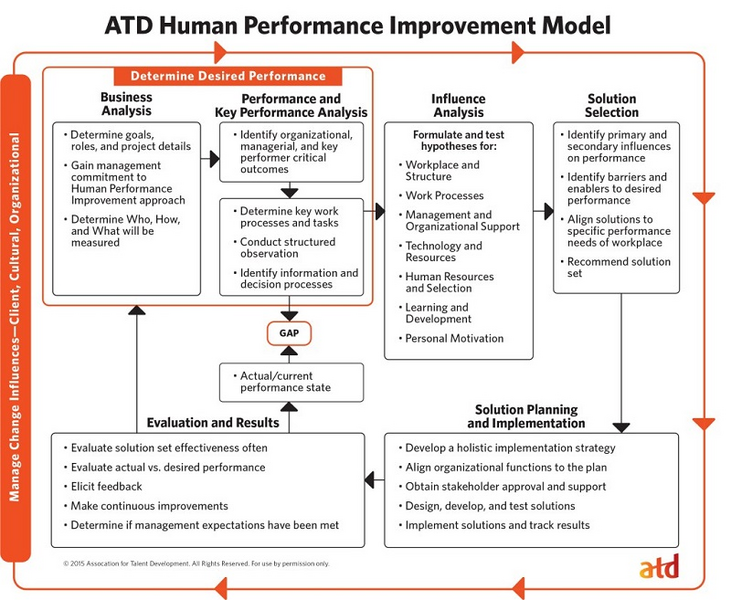ATD Blog
Performance Improvement, Management, or Consulting?
Fri Apr 07 2023

Organizational leaders, employees, and talent development (TD) professionals focus on performance, so TD professionals must understand different ways to support optimal performance. ATD’s Talent Development Body of Knowledge (TDBoK) defines “performance” as “the execution and accomplishment of some activity; it is not an adjective that describes the action itself.” This article reviews three primary approaches used to support optimal performance.
When discussing performance in organizations, it is generally approached in terms of how well an individual executes the key responsibilities of their role, the way a system or process is working, or in terms of key business and financial metrics. In performance discussions, four questions generally arise:
1. What is current performance like?
2. How does this compare with desired performance?
3. Whether or not there is a gap in current performance, what are the opportunities to improve performance?
4. How can we improve performance?
As a TD professional, it is essential to understand the concepts, methods, and tools available and how to use them to drive performance that helps organizations achieve their goals.
First, let’s look at performance improvement. Performance improvement is the systematic process of identifying the root causes of a performance issue in an organization and implementing solutions to resolve that issue. Generally, every individual in an organization is tasked with performance improvement in their areas of responsibility. Performance improvement is the process applied and the actions taken to improve performance, whereas performance is the execution and accomplishment of some activity.
Second, let’s look at performance management. The TDBoK defines performance management as “an ongoing communication process between supervisors and employees to establish expectations that support accomplishing the organization’s strategic objectives, including clarifying expectations, setting objectives, providing feedback and coaching, and reviewing results.” Performance management is a process that focuses on an organization’s commitment to consistent communication and clarity related to an employee’s ongoing performance concerning their role and organizational goals. Performance management generally includes regular performance appraisals of an employee’s work.
ATD’s TDBoK defines a performance appraisal as “an assessment of an employee’s job accomplishments. It may also be referred to as a performance review, performance evaluation, or employee appraisal.” Many organizations leverage technology to support performance management. Some of these systems include ADP Performance Management, WorkDay, BambooHR, and others. The manager and employee are the main drivers in the performance management process. Human resources and talent management can support the employee and manager when a specific performance improvement plan is established for an employee.
The third approach to performance is performance consulting, a discipline that uses a performance consulting model like ATD’s HPI (human performance improvement) model and provides value to any professional’s overall business acumen. We use performance consulting to improve performance by:
1. Identifying the performance goal in terms of outcomes
2. Verifying alignment of the performance goal with business goals
3. Analyzing current performance to quantify the performance gap in terms of outcomes
4. Recommending the best solution to close the gap while employing project management, change management, and performance evaluation best practices
This is an image representing ATD’s HPI

Business and organizational leaders value partnerships with effective TD professionals who can address the priority of performance in their organizations. Knowing the differences between performance improvement, performance management, and performance consulting is essential for TD professionals to create effective partnerships.
Advance your career with a performance improvement certificate and gain the skills, tools, and real-world experience to drive measurable business results.
